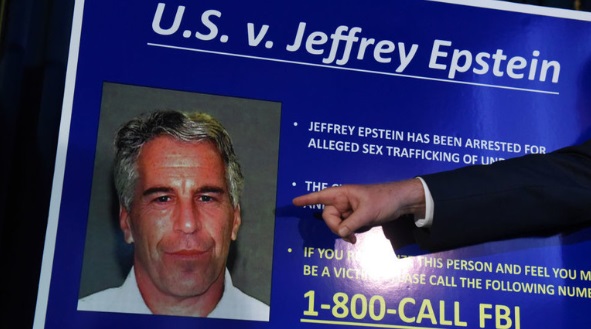In July 2025, a public rift between billionaire Elon Musk and President Donald Trump reached a fever pitch, with Musk accusing Trump of shielding Attorney General Pam Bondi from scrutiny over her handling of the Jeffrey Epstein case files. Musk, once a key ally of Trump, has taken to X, the social platform he owns, to demand the release of the so-called “Epstein files,” alleging they contain incriminating details about the president. Trump, in response, has staunchly defended Bondi, dismissing the controversy as a distraction and urging supporters to move on. This high-stakes clash, fueled by a July 7, 2025, Justice Department memo that found no evidence of an Epstein “client list” or foul play in his 2019 death, has reignited conspiracy theories and deepened divisions within Trump’s base. As Musk’s calls for transparency clash with Trump’s insistence on closing the case, the world watches, wondering what secrets—if any—remain buried and what this feud means for America’s political landscape.

The Epstein Files Controversy
Jeffrey Epstein, the disgraced financier and convicted sex offender, died by suicide in a Manhattan jail cell in August 2019 while awaiting trial on sex trafficking charges. His high-profile connections to figures like Trump, former President Bill Clinton, and Prince Andrew, combined with his criminal activities, have made the Epstein case a magnet for conspiracy theories. Many, particularly among Trump’s MAGA base, believe the government is withholding a “client list” of prominent individuals tied to Epstein’s crimes. These theories gained traction after Attorney General Pam Bondi, appointed in early 2025, suggested in a February Fox News interview that such a list was “sitting on my desk right now to review.”
However, on July 7, 2025, the Justice Department and FBI released a memo stating that a systematic review of over 300 gigabytes of data found “no incriminating client list” and no evidence of blackmail or foul play in Epstein’s death, consistent with prior findings from 2019 and 2023 investigations. The memo also included video footage from Epstein’s cell, which showed no one entering on the night he died, though a one-minute-two-second time code gap fueled further speculation among skeptics. Bondi clarified that her earlier comments referred to the broader Epstein files, not a specific list, a retraction that angered conservative influencers who felt misled.
Musk’s Public Attack
Elon Musk, who parted ways with the Trump administration in June 2025 over disagreements on a $3.3 trillion spending bill, has emerged as a vocal critic of the administration’s handling of the Epstein case. On July 9, 2025, Musk posted on X, “How can people be expected to have faith in Trump if he won’t release the Epstein files?” This followed earlier posts in June, where he alleged, without evidence, that Trump’s name appears in the files, writing, “Time to drop the really big bomb: @realDonaldTrump is in the Epstein files. That is the real reason they have not been made public.” Musk later deleted this post and expressed regret for some of his jabs, but his July comments reignited the controversy, drawing sharp responses from Trump and his allies.
Musk’s accusations escalated on July 12, when he responded to a screenshot of Trump’s Truth Social post defending Bondi, calling it “in the running for worst post ever made” and adding, “He said ‘Epstein’ half a dozen times while telling everyone to stop talking about Epstein. Just release the files as promised.” Musk also mocked the Justice Department’s findings, posting, “What’s the time? Oh look, it’s no-one-has-been-arrested-o’clock again,” implying a cover-up. These statements reflect Musk’s broader shift toward challenging Trump, with whom he had a falling-out after resigning from the Department of Government Efficiency (DOGE).
Trump’s Defense of Bondi
On July 12, 2025, Trump took to Truth Social to defend Bondi, writing in all caps, “LET PAM BONDI DO HER JOB — SHE’S GREAT!” He expressed frustration with his base, particularly far-right influencers like Laura Loomer, who accused Bondi of covering up child sex crimes from her time as Florida’s Attorney General (2011–2019). Trump argued that critics were wasting energy on Epstein, a “creep” who has been “talked about for years,” and pointed out that his administration had already released some files in February 2025, which included Trump’s name but no accusations of wrongdoing. He also noted that he had severed ties with Epstein years before his death, a claim supported by sources who say Trump banned him from his Palm Beach Golf Club.
Trump dismissed Musk’s allegations as “old news,” telling NBC News, “Even Epstein’s lawyer said I had nothing to do with it.” He accused Democrats of hyping the Epstein case for political gain, pointing out that they never released the files during their administrations. White House Press Secretary Karoline Leavitt called Musk’s claims an “unfortunate episode” tied to his opposition to the spending bill, emphasizing that the administration’s February release included Trump’s name transparently.
Congressional and Public Pressure
The Epstein files have drawn bipartisan scrutiny. In June 2025, Democratic Representatives Robert Garcia and Stephen F. Lynch wrote to Bondi and FBI Director Kash Patel, citing Musk’s allegations and expressing “profound alarm” that the files were being withheld to protect Trump. They noted Trump’s “well-documented affiliation” with Epstein, including a 2001 incident where Epstein’s plane, carrying accuser Johanna Sjoberg, landed at one of Trump’s Atlantic City casinos due to a storm. No wrongdoing was alleged, but the association fueled speculation. Representative Dan Goldman also raised concerns, alleging that FBI agents were redacting Trump’s name at his direction, a claim the White House called a “baseless stunt.”
On the right, influencers like Loomer and Liz Wheeler have turned on Bondi, with Loomer demanding her resignation and Wheeler calling her a “liability” to Trump’s administration. The February 2025 release of “Phase 1” files, which contained mostly public information, was met with derision, and the July memo’s conclusion that no client list exists further inflamed conspiracy theorists. Some, like Alex Jones, sarcastically remarked that the DOJ might next claim “Jeffrey Epstein never even existed.”
A Critical Perspective
The Musk-Trump feud over the Epstein files highlights a broader tension between transparency and political loyalty. Musk’s push for the files’ release aligns with his self-styled image as a truth-seeker, but his lack of evidence for claims about Trump’s involvement risks fueling baseless conspiracies. The Justice Department’s findings, backed by multiple investigations, debunk the existence of a “client list” and affirm Epstein’s suicide, yet the time code gap in the released video and Bondi’s earlier statements keep suspicions alive. Legal experts, like Business Insider’s Jacob Shamsian, have long argued that a “client list” is a myth, as Epstein’s operations didn’t involve such a document, and no indictments reference it.
Trump’s defense of Bondi may be less about suppressing secrets and more about maintaining control over a fractious base. His dismissal of the Epstein case as old news reflects frustration with a topic that distracts from his legislative agenda, like the “One Big Beautiful Bill.” However, his administration’s initial hype around the files, including Bondi’s Fox News comments, set unrealistic expectations, making the July memo’s conclusions a political liability. Musk’s role, as a former ally turned critic, amplifies the issue, leveraging his X platform to sway public opinion.
Implications for the Future
The Epstein files controversy threatens to destabilize Trump’s relationship with his base, already strained by disputes over spending and foreign policy. Musk’s formation of the America Party in July 2025, aimed at challenging the two-party system, positions him as a wildcard who could split conservative votes in the 2026 midterms. His wealth and influence, coupled with control over X, make him a formidable opponent, though his unverified claims risk undermining his credibility.
For Bondi, the pressure is intense. Her tenure as Florida’s Attorney General overlapped with Epstein’s activities, and critics like Loomer argue she failed to act decisively then. The DOJ’s decision to halt further releases, citing the graphic nature of some materials, may protect victims but does little to quell conspiracy theories. As long as key questions—like the extent of redactions or the nature of withheld videos—remain unanswered, public suspicion will persist.
Conclusion
Elon Musk’s call to release the Epstein files has thrust him into direct conflict with President Trump, who remains steadfast in defending Attorney General Pam Bondi. The July 2025 Justice Department memo, which found no client list or evidence of foul play, has failed to satisfy skeptics, fueling a cycle of distrust and conspiracy. While Musk’s accusations lack substantiation, they tap into a deep public desire for transparency about Epstein’s crimes and connections. Trump’s dismissal of the issue as a distraction risks alienating supporters who see the files as a test of his commitment to truth. As this feud unfolds, it underscores the power of billionaires and social media to shape narratives, even as the truth about Epstein remains elusive. The world awaits “Phase 2” of the files, but for now, the clash between Musk and Trump is the real story, with consequences that could ripple through American politics for years to come.




